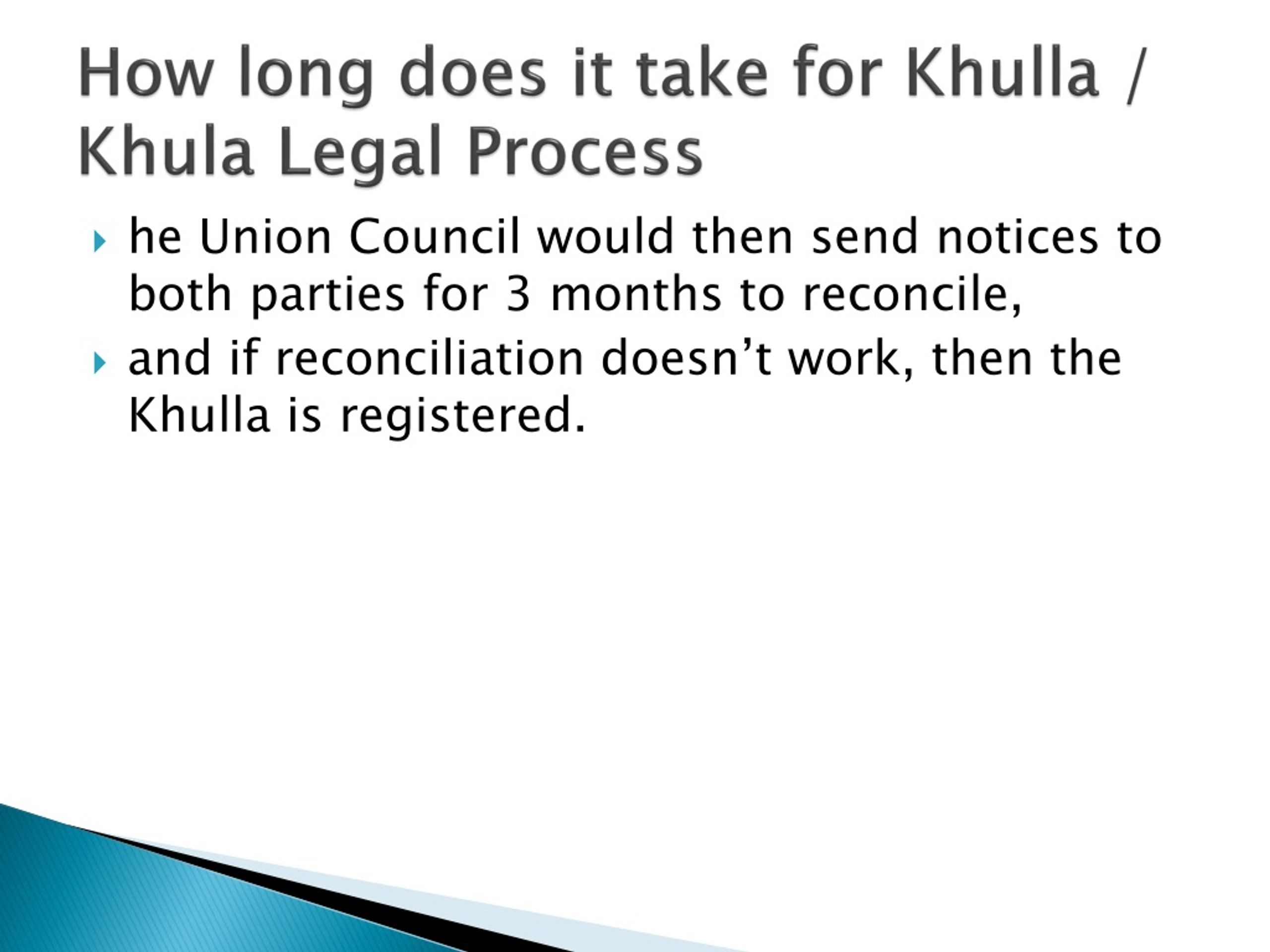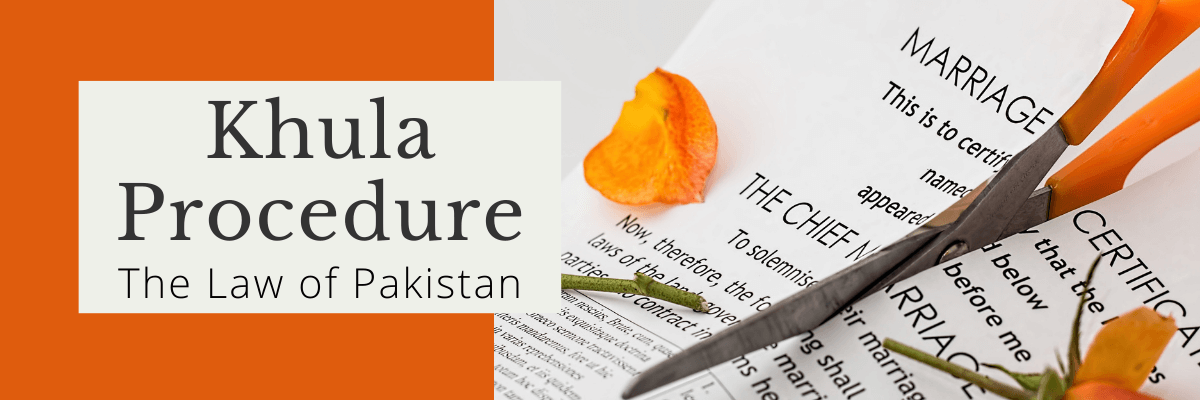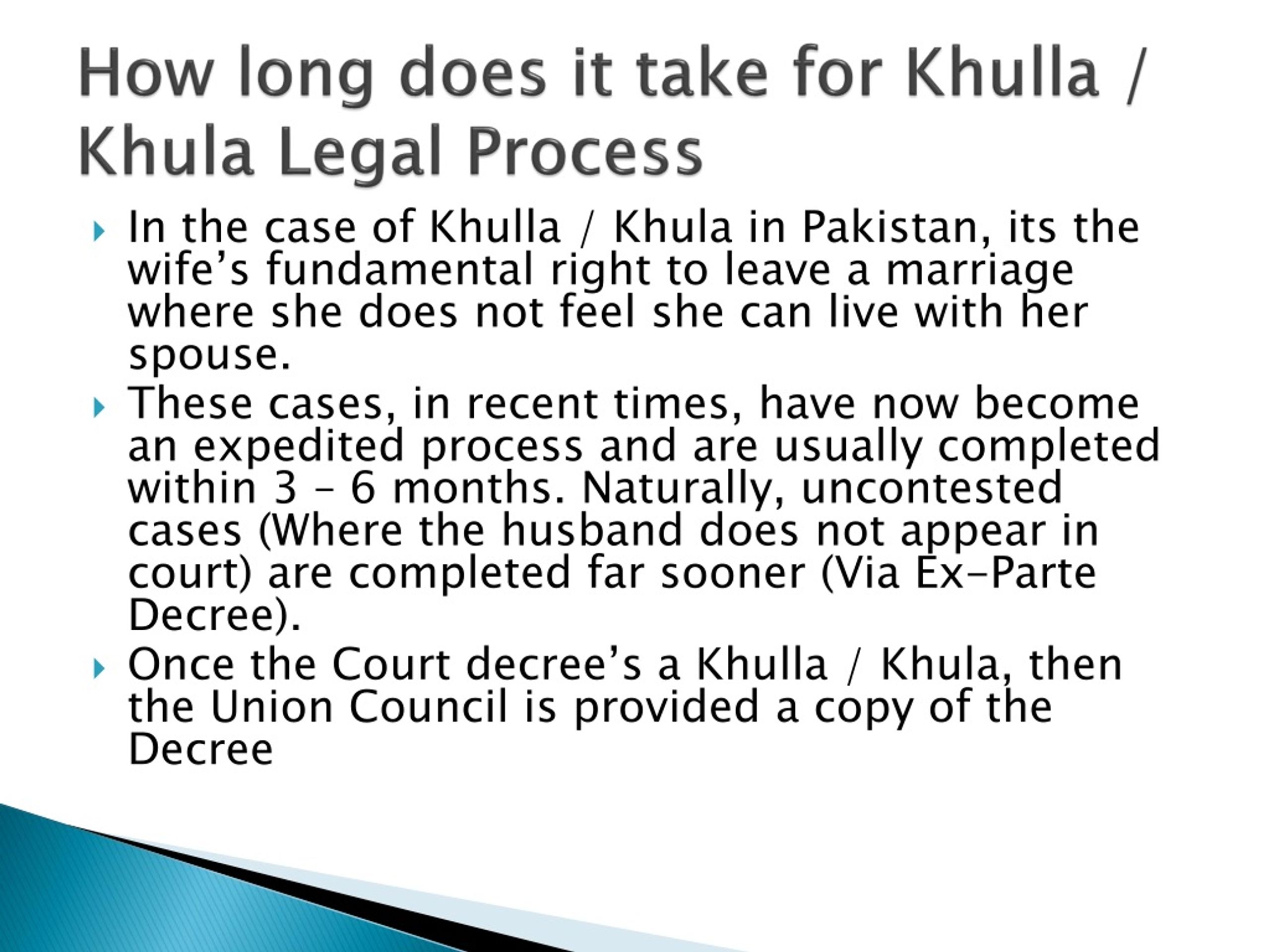How Long Does Khula Take In Pakistan

Imagine a woman in Lahore, perhaps named Aisha, anxiously checking her phone. Sunlight streams through the intricately carved wooden jali of her window, illuminating dust motes dancing in the air. She's waiting for news, a confirmation, a sign that a chapter of her life is finally closing and a new one can begin. She has filed for khula, the Islamic provision allowing a woman to seek divorce, but the clock seems to tick with agonizing slowness.
Understanding the timeline for a khula in Pakistan is crucial for women seeking this route to dissolve their marriage. While the process is designed to be relatively straightforward compared to a male-initiated divorce (talaq), several factors can influence the duration, ranging from a few months to potentially over a year.
Understanding Khula in Pakistan
Khula, derived from Islamic law, grants a woman the right to divorce her husband without his consent, typically if she is willing to forgo her mahr (dowry) or other financial entitlements. This differs from talaq, where the husband can unilaterally divorce his wife. The right to khula is enshrined in Pakistani law, reflecting the country's commitment to protecting women's rights within an Islamic framework.
Historically, accessing khula has been a significant step for women in patriarchal societies. It provides a legal avenue for ending marriages where irreconcilable differences exist or where a woman faces abuse or neglect. This empowerment is a testament to the ongoing evolution of women's rights in Pakistan.
Factors Influencing the Timeline
The length of the khula process depends on a number of variables. These include the specific court handling the case, the husband's cooperation, and the complexity of any related disputes regarding child custody or financial settlements. Let's break down these factors:
Court Efficiency and Caseload
Pakistani courts, particularly in densely populated urban areas, often face a heavy caseload. This backlog can inevitably lead to delays in processing cases, including khula applications. The efficiency of the court staff and the availability of judges also play a crucial role.
Husband's Cooperation (or Lack Thereof)
If the husband is cooperative and agrees to the khula, the process can be expedited considerably. However, if he contests the divorce, the court will need to hear both sides of the story, potentially leading to lengthy hearings and delays.
Disputes Over Child Custody and Finances
Issues related to child custody, visitation rights, and financial settlements (such as alimony or division of property) can significantly prolong the khula proceedings. These disputes often require extensive documentation, witness testimonies, and potentially even forensic investigations.
The General Process and Timeline
Typically, a woman initiating khula files an application with the family court. The court then issues a notice to the husband, requiring him to respond. After the husband's response, the court will attempt reconciliation between the parties.
If reconciliation fails, the court will proceed with the khula. If there are no major disputes and the husband is cooperative, this process could take as little as 3-6 months. However, in contested cases with complex issues, it can easily extend to a year or longer.
It's important to note that legal representation can significantly impact the timeline. An experienced lawyer can navigate the legal complexities and advocate for their client, potentially speeding up the process and ensuring a fair outcome.
Seeking Legal Advice and Support
Navigating the khula process can be emotionally and legally challenging. It is highly recommended that women seeking khula consult with a qualified lawyer specializing in family law in Pakistan. Legal professionals can provide guidance, represent their clients in court, and ensure their rights are protected throughout the process.
Furthermore, support from family, friends, or support groups can be invaluable during this difficult time. Sharing experiences and receiving emotional support can help women cope with the stress and uncertainty associated with divorce.
Ultimately, while the timeline for a khula in Pakistan can vary, understanding the influencing factors and seeking appropriate legal and emotional support can empower women to navigate this process with greater confidence and clarity. The journey might be arduous, but the destination – a chance for a new beginning – makes it worthwhile.


















